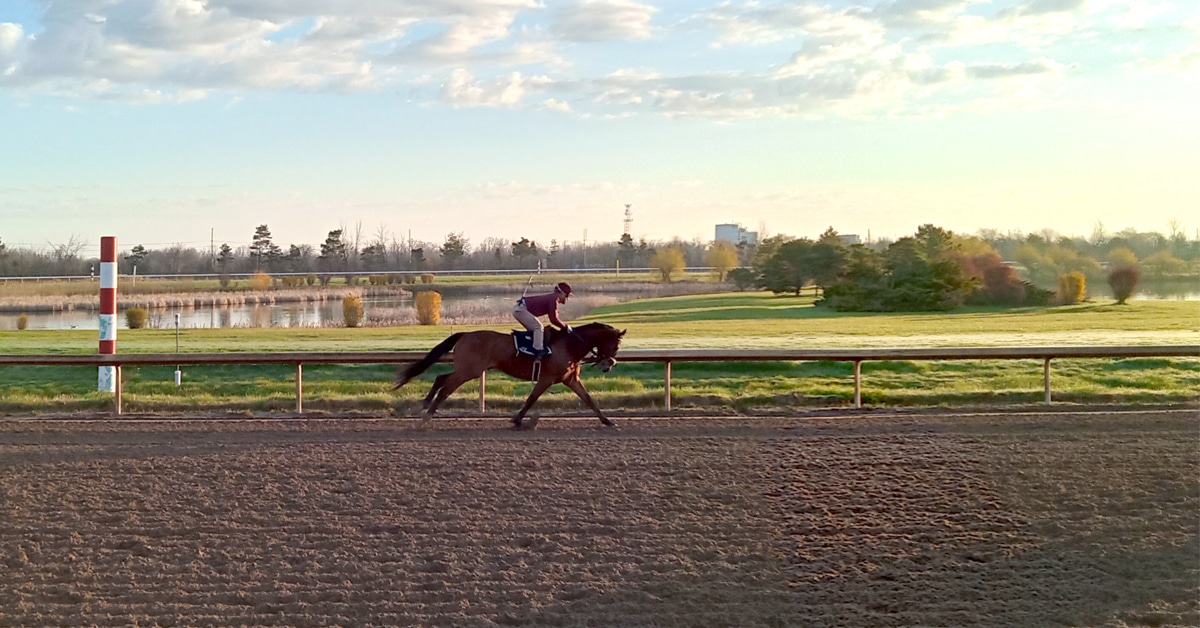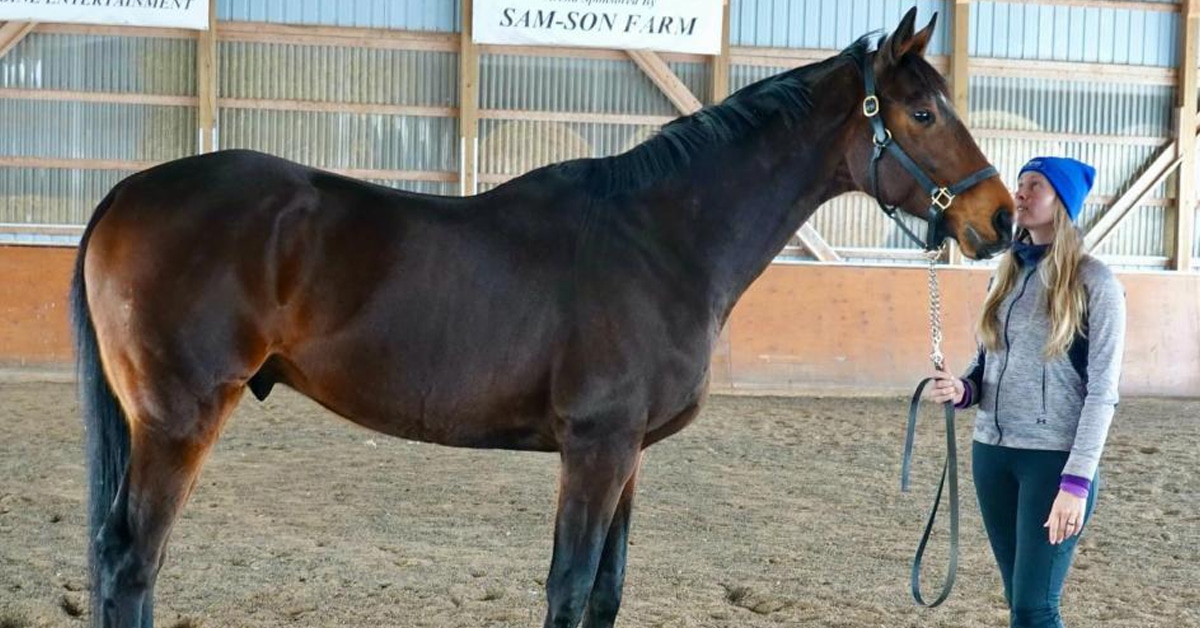The Horse Racing Appeal Panel, chaired by Stanley Sadinsky, has granted Ivan Dalos’s appeal to have H C Holiday’s placing and purse reinstated. The horse won a Maiden Optional Claiming race last June with a purse of $64,300 but was subsequently disqualified when it was discovered that his enrollment in the Lasix program had not been reported and he did not receive the medication.
“We are very pleased with the result and thought that Sadinsky did a good job of managing the situation,” said Colleen Dalos, who acted on behalf of her father, Ivan Dalos, during the trial. “We always thought that the facts were clear, but this case is unique and unprecedented. It hasn’t happened before and no rules apply, which made it more complicated.”
H C Holiday had been enrolled in the Lasix program the previous year, but when he was entered for his first day of racing last year the Alcohol and Gaming Commission of Ontario’s (AGCO) website and database were not working. These systems are used to confirm eligibility for a race, but as they were offline the horse’s enrollment in the Lasix program was not known. As a result, the horse did not receive the medication, which was accurately reflected in the racing program.
In his decision, Sadinsky noted that both the AGCO and the trainer, Kevin Attard, bore some responsibility for the oversight, but ultimately he concluded that the final responsibility was with the AGCO.
“In my view, the database was put in place to assist the AGCO in discharging its obligation set out in Section 170.1(1) (f) above, viz. to ensure that any horse on the EIPH list that did not receive the drug Furosemide is scratched.”
Questionable Tactics by AGCO
Following the decision on the case, Sadinksy ruled on Dalos’s motion for disclosure. Earlier in the trial, the attorney for Dalos, Stephen Jack, argued that he had twice asked the AGCO for full disclosure of all pertinent documents and had twice been told explicitly by the AGCO that there was nothing further to be disclosed.
“In the first book of disclosure they gave us very little. No notes from the stewards, no emails, no phone records, none of the documents I knew existed because I personally had conversations and knew of others with various people that should have been included,” said Dalos.
As a result of the lack of cooperation, Jack made a formal Motion for Disclosure but just a few days before the motion was heard, the AGCO provided the extra documents. The AGCO explained the delay was because it was a large organization and that the material had only recently been found. Disclosure continued to arrive until just a few days before the hearing, including several emails about the AGCO system being down.
“They knew that their systems were down and they didn’t do anything to warn the trainers or owners about the problem,” said Dalos. “Had they done that, this whole situation might have been avoided.”
According to Jack, these delays are not normal procedure.
“Normally, material is supposed to be produced well in advance, at least seven days before a hearing,” said Jack. “In this case, I got a tremendous amount of disclosure after the motion hearing. I was even receiving disclosure as late as the Friday before the Monday hearing. It becomes very difficult to prepare for the hearing on Monday when still receiving material on Friday.”
“We we’re very pleased with how the Chair handled this case and happy that he came to the right conclusion. However, we didn’t feel that the AGCO contributed to a fair process or that they were respectful of us,” remarked Dalos on her overall impression of the experience. “I found their conduct inappropriate and disrespectful. As the industry regulator, they should be helping licensees rather than working against them. Licensees deserve to have a fair and respectful process and that didn’t happen here. I hope that they can learn from this case and make improvements for the future. I’m disappointed in the conduct of AGCO and our hope is that they will do better. The licensees are the backbone of the industry and must be treated with respect.”
Sadinsky also found the conduct unacceptable and awarded Dalos costs for the motion, noting that: “In my view, when in an appeal proceeding disclosure is requested from the AGCO, it has a duty to collect all the relevant material in its possession that it is willing to disclose and provide it to an Appellant. If there is material that the AGCO is unwilling to disclose, it should identify it so that an Appellant can move for disclosure if so advised. To categorically deny that certain material exists and to then disclose it is unreasonable and unacceptable.”
AGCO is currently reviewing the decision and will decide whether they will pursue an appeal.
More from Industry:






